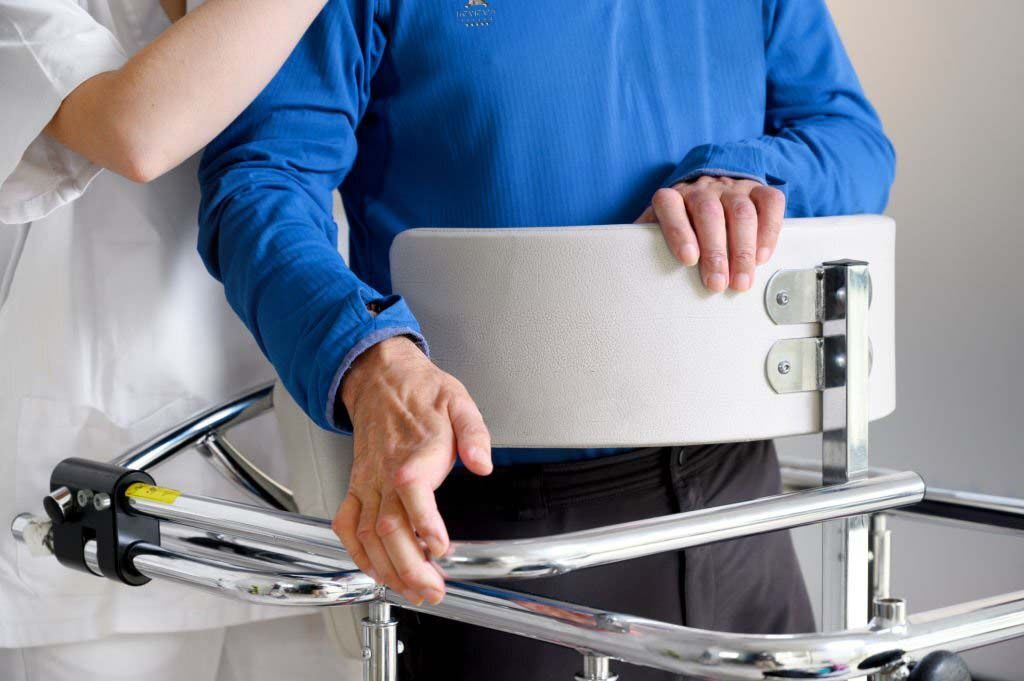This article is reviewed, corrected, and approved by: Dr. Joshua Collins M.D. | MRCP। FRCP
Amyotrophic lateral sclerosis (ALS) is a condition that affects the spinal cord and brain nerves. This condition is quite uncommon that affects 1 in 30000 individuals. A person with ALS steadily loses the capacity to move their muscles, which can lead to loss of motion.
Do you know facts about als? As motor neurons die, people with ALS lose the ability to move their muscles, including the muscles they use to walk, talk, eat, and breathe. I am about to discuss some interesting facts about ALS, the cause and symptoms of ALS, risk factors of als, and some vital facts related to it.
Science Behind ALS
Lou Gehrig's disease, or ALS, damages the nerve cells that control our muscles. A famous baseball player contracted Lou Gehrig's disease in 1939 and had to resign because of it. It is usually called Lou Gehrig's disease, named after him. Motor neurons (kind of cells) send messages from the brain to the muscles.
Because of ALS, these nerves progressively degenerate and perish. This degeneration impairs the muscles' ability to receive instructions, resulting in weakness, muscle wasting, and eventual paralysis.
Cause of ALS

ALS, or Lou Gehrig's, generally affects the spinal cord and brain. And other nerve cells which assist to control our bodily muscle movement. The causes are unknown, but genetics and environment may play a role.
- Genetic Factors: In some cases, ALS is linked to specific genetic mutations. It is worth noting that a small percentage, around 5-10%, of Amyotrophic lateral sclerosis (ALS) cases are inherited from family members.
- Bad Genes: This occurs due to mutations in certain genes. Such as C9orf72, SOD1, TARDBP, and FUS have been associated with an increased chance of developing Amyotrophic lateral sclerosis.
- Environmental Factors: The development of ALS may be influenced by certain environmental factors. This includes exposure to toxins, heavy metals (like lead and mercury), pesticides, and certain chemicals. However, the specific environmental triggers and their relationship to ALS are still being studied.
- Age: ALS can occur at any age, but ALS typically manifests in individuals between the ages of 50 and 70. As one ages, the likelihood of developing ALS tends to rise.
- Gender: According to several studies, men are more prone to als than women, particularly in younger age groups. However, this gender difference becomes less prominent among older individuals.
- Family History: Having a family history of ALS or other motor neuron diseases increases the risk of developing the condition. In familial ALS, the disease is passed down through generations.
Although these factors make it more likely that someone may get ALS, it doesn't mean they will definitely get it. ALS is a complex condition and it needs to do more research to completely understand what causes it and what makes people more likely to get it.
Symptoms of ALS

ALS symptoms can differ from individual to individual, but supposedly they entail gradual weakening and loss of muscle control. Here are some common symptoms associated with ALS:
- Muscle weakness: One of the primary symptoms of ALS is the gradual onset of muscle weakness. It often begins in the hands, feet, or limbs and can later affect other parts of the body. Weakness may cause difficulties with tasks like lifting objects, walking, or speaking.
- Muscle atrophy: There is a possibility that the muscles affected by ALS will start to shrink and waste away as the disease progresses. This can lead to noticeable thinning and weakness in the affected areas.
- Spasticity: It is possible that spasticity, which causes muscle stiffness and spasms, may be experienced by certain individuals with ALS. This can cause muscle cramps, pain, and difficulties with movement.
- Muscle twitching: Involuntary muscle twitching, also called fasciculations, is a ubiquitous early ALS sign. These twitches or pain with als can occur in various muscles and are often visible under the skin.
- Difficulties with speech and swallowing: Speech and swallowing muscles can be affected by ALS. It is a common symptom of als in the elderly. Lou Gehrig's disease lead to slurred speech, difficulty articulating words, and problems with swallowing food and liquids.
- Changes in breathing: As ALS progresses, the muscles responsible for breathing may weaken, resulting in shortness of breath, difficulty taking deep breaths, or weakened coughing ability.
How to Prevent ALS?

There is a drug called riluzole that is approved by the FDA for slowing down the progression of liver disease. Physical therapy, ALS speech therapy, swallow therapy, and palliative care are also important components of ALS management.
- Riluzole (Rilutek): This medication is an FDA-approved treatment for Amyotrophic lateral sclerosis. It slows the development of the condition by reducing the demise of motor neurons.
- Physical therapy: Physical therapy can be incredibly beneficial in maintaining muscle strength and function. It's a proactive approach to ensuring your body stays healthy and strong for years to come.
- Speech therapy: Communication skills can be improved through ALS speech therapy.
- Swallow therapy: Swallow therapy can help to prevent choking and pneumonia.
- Palliative care: Speech therapy can help you enhance your communication abilities. It is crucial that persons with ALS have access to palliative care, even if they are not yet in the terminal stages of the disease.
Families and individuals dealing with ALS can gain valuable support and access to resources through various organizations. For example, “The ALS Association”.
There are organizations out there, like The Muscular Dystrophy Association and The ALS Therapy Development Institute, that claim to be helping those affected by ALS. I'm not sure how much assistance they can actually provide during such a trying time, but they seem dedicated to the cause.
Strategies And Tips to Reduce The Risk of Developing ALS

While there is no guaranteed way to prevent ALS, there are strategies you can adopt to potentially reduce your risk. Here are some tips:
Maintain a healthy lifestyle
By adding a mixture of healthy foods into your meal. Such as green vegetables, fruits, lean proteins, and fatty acids. Try to exercise regularly by doing a variety of activities like cardio, strength training, and stretching.
Minimize toxin exposure
Be cautious of toxins in your environment, like lead, pesticides, chemicals, and heavy metals. It is one of the risk factors for ALS.
Limit your exposure by avoiding or minimizing contact. This helps ensure your safety and health.
Quit smoking and moderate alcohol consumption
Studies have shown a correlation between increased risk of ALS and smoking as well as excessive alcohol consumption. It has been suggested that quitting smoking and moderating alcohol intake may have a positive impact on overall health.
Manage stress
When you are stressed, it can have a bad influence on your health, especially on nerves. If you're feeling stressed, doing yoga, jogging, deep breathing exercise, or engage in activities that bring you joy. These methods can be very effective in promoting a sense of calm and reducing anxiety.
Consider genetic counseling
If there is a hereditary link to ALS in your family or other motor neuron diseases, genetic counseling can provide insights into your risk factors als and offer guidance on potential preventive measures.
Stay informed and support research
Stay updated on ALS research advancements and consider participating in clinical trials or supporting organizations that fund ALS research. Contributing to research efforts can help develop potential preventive strategies and treatments.
Finally, keep in mind that these suggestions can't guarantee that you won't develop ALS. It would be best for you to talk to medical experts to get advice that's tailored to your specific needs, and it's important to be proactive about taking care of your overall health.
F.A.Qs
Q: Does als cause death?
Ans: The possibility of death is common. Within 18 to 24 months of receiving a diagnosis of ALS, half of people die. In some cases, ALS patients live for over 10 years.
Q: What is the best treatment for ALS?
Ans: There are no cures still available for ALS disease, but some therapy or supplementation can be used as health expert suggestions.
Q: Is amyotrophic lateral sclerosis an autoimmune disease?
Ans: Amyotrophic lateral sclerosis (ALS), also known as Lou Gehrig's disease, is not considered an autoimmune disease.
Q: Does als cause pain in early stages?Ans: While pain is not commonly associated with the early stages of ALS, some individuals may still suffer from it.
The Bottom line
ALS is a condition that can greatly impact one's quality of life. Unluckily, there's no remedy for ALS has been found yet, but taking care properly an individual can lead to a long life. In any case, there are accessible medicines that can offer assistance in moderating the movement of the illness and making strides in the person's quality of life.


